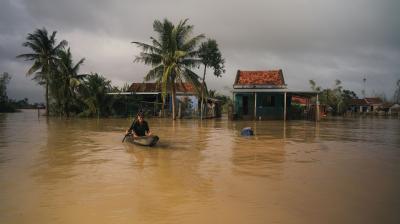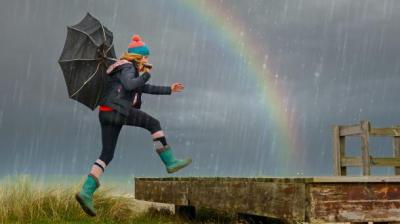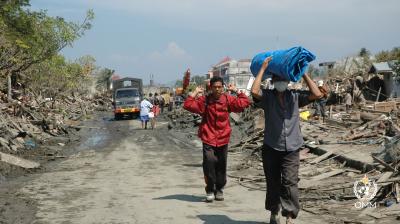COP28 showcases socio-economic benefits of weather and climate services

And yet, the socio-economic benefits of these services are difficult to quantify and so are often overlooked or underestimated. As a result, many governments make insufficient investments and budget allocations for NMHSs.
WMO is seeking to redress the balance.
A side-event at COP28 issued calls to national governments, international development and financial institutions to step up and support NMHSs by substantially increasing investment levels.
One US dollar of investment in hydrometeorological services can yield a US $ 9 benefit, said WMO Secretary-General Elena Manaenkova. But this is a global average and regional and national figures can vary.
In the past 50 years, extreme weather, climate and water-related hazards killed more than 2 million people and led to economic losses of an estimated US $ 4.8 trillion, Dr Manaenkova told the side event.
“In the most recent decade, there was not any single event with more than 10,000 deaths, which indicates that Early Warning Systems work,” said Dr Manaeknova, citing the WMO State of the Climate Report 2011-2020: A decade of accelerating climate change.
Even so, there is still an unacceptably high number of casualties from hazards like heatwaves, flooding and landslides and tropical storms, she said. And economic losses are growing.
In absolute terms, they are highest in the United States of America and other developed economies. But the real impact is greatest for developing countries.
“If you compare in relative terms the economics losses in Least Developed Countries and Small Island Developing States where it can sometimes be above 100 percent of Gross Domestic Product. One single tropical storm can set back years of development,” said Dr Manaenkova.
The side event focused on the following key questions:
- What are the socioeconomic benefits that National Meteorological and Hydrological Services (NMHSs) can bring to the society.
Dr Ladislaus Chang’a, Acting Director-General, Tanzania Meteorological Authority and IPCC Vice-Chair, said dozens of people were killed in a matter of days in devastating floods in his own country and, most recently, Somalia.
“But saving life and properties is the most important work of NMHSs, especially now that we are experiencing increasing frequency and intensitv of extreme events. If we are able to strengthen climate services, we are going to reduce the impact associated with extreme events,” he said.
Dr Arlene Laing, Coordinating Director of the Caribbean Meteorological Organization, said weather and climate services were now mainstreamed into planning for key sectors like agriculture and aviation. At community level, she said these services made the difference between a fishermen losing livelihoods as a result of bad weather or saving their boat by not venturing out.
- How are extreme weather events and climate change setting back progress towards achieving the Sustainable Development Goals (SDGs)?
Sanny Ramos Jegillos, Senior Adviser, Disaster Risk Reduction, United Nations Development Programme, said socio-eonomic losses are greatly underestimated because of lack of reporting. For instance, a flood in Thailand in 2011 had consequences for several years for global supply chains. In Asia, many weather-related hazards cause great losses at household level and these are never factored in.
Dr Chantal Line Carpentier, of the UN Conference on Trade and Development, said many developing countries spend more on servicing debt than climate adaptation. Whatever we do, we need to ensure that we address the pre-existing inequality in the financial and trade system. We need to make sure that the little money that is available is going to do both mitigation and adaptation.
- How can socioeconomic benefit assessments of investments into weather, climate, and water services support decision-making and long-term planning?
Dr Bapon Fakhruddin, Water Resources Management Senior Specialist, Green Climate Fund, said that saving lives and reducing damage is not enough for early warning systems. There is a need to develop a culture for risk-based decision making, as well as an inter-disciplinary approach to understand the preliminary hazard and the cascading impact of it.
Helen Bye, Head of International Engagement, UK Met Office, said that a Met Office study forecast the potential benefits of a planned new supercomputer would be a 9:1 return on investment. In fact, it proved to be 14:1 return.
The Weather and Climate Information Services (WISER) project seeks to use quantitative tools to understand the benefits. This ranged between 1:7 and 1:26 depending on the project, she said.





